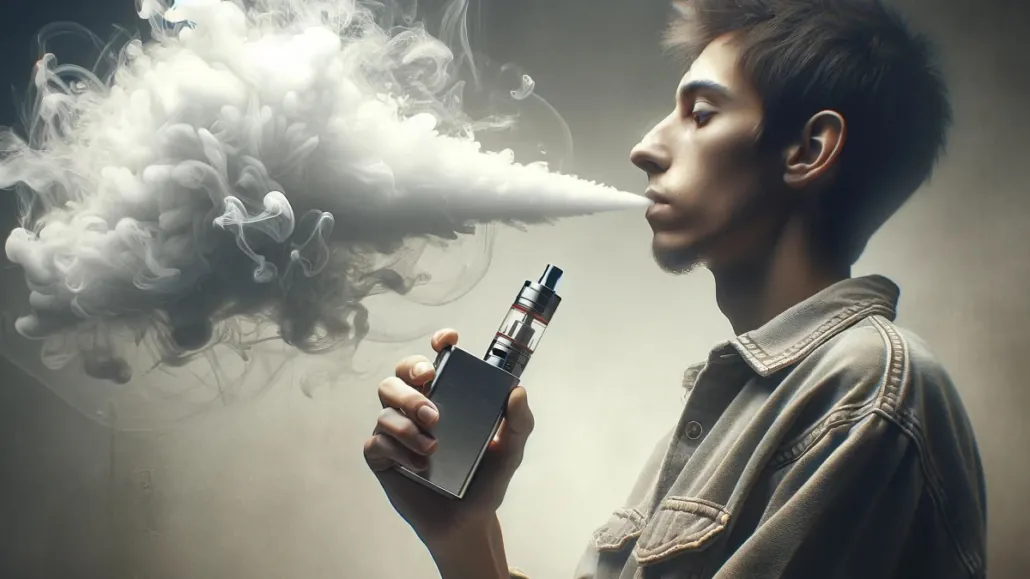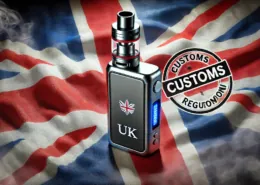What is Vape? The Meaning of Vaping Explained
In recent years, the term ‘vape’ has become increasingly prevalent in our daily conversations and media. But what exactly does ‘vape’ mean, and why has it gained such widespread attention? This comprehensive guide aims to provide a thorough understanding of vaping, its origins, associated products, reasons for its popularity, health implications, and the controversies surrounding it.
The Origin and Meaning of ‘Vape’
The word ‘vape’ can be traced back to the 1980s, derived from the term ‘vaporizer.’ Initially, vaporizers were developed as medical devices to heat cannabis or tobacco, releasing active compounds without the harmful effects of combustion. The first recorded use of ‘vape’ appeared in a 1983 New York Times article discussing early cannabis and tobacco vaporizers.
As vaporizers became more consumer-friendly throughout the 1990s and 2000s, the term ‘vape’ gained popularity. By 2010, the Oxford English Dictionary officially recognized ‘vape’ as a verb, defining it as “to inhale and exhale the vapor produced by an electronic cigarette or similar device.“
At its core, ‘vape’ refers to the act of inhaling vapor through the mouth and into the lungs. This vapor may contain nicotine, marijuana, flavorings, or no active ingredients at all. The key distinction between vaping and smoking is the absence of combustion in the vaping process.

Vaping Products, Methods, and Devices
Vaping encompasses a wide array of products and devices, each with its own unique features and benefits. Some of the most common types of vaping devices include:
Disposable Vapes
Disposable vapes are convenient, portable, and easy to use. They come pre-filled with e-liquid and are designed to be discarded once the liquid runs out. While they may have limited vapor production compared to more advanced devices, disposable vapes offer a cost-effective and hassle-free introduction to vaping.
Vape Pens
Vape pens are compact, cylindrical devices that feature an all-in-one design with a built-in battery, heating element, and refillable reservoir. They are popular for vaping nicotine e-liquids or cannabis oils and offer a balance between portability and performance.
Pod Vapes
Pod vapes are small, lightweight devices that utilize pre-filled, disposable pods. They are simple to use, with minimal settings to adjust, and allow for easy switching between flavors. Pod vapes have gained popularity among beginners and those seeking a discreet vaping experience.

Ecigator Sticky Open Pod Kit
The Sticky Open Pod Kit is a contemporary vaping device that combines functionality with fashion. This kit is designed with a box-style form factor, offering a compact and stylish appearance that’s ideal for vaping enthusiasts on the move.
At the heart of this kit is a Refillable Open Pod System, with a capacity of 2ml, perfect for accommodating a variety of e-liquids. The pod is equipped with a high-quality Mesh Coil that not only ensures a rich and flavorful vaping experience but also boasts durability for up to 8 Refills.
Mods/Advanced Personal Vaporizers
Mods, or advanced personal vaporizers, are larger and more customizable devices. They feature separate batteries, tanks, and coils, allowing for various modifications to suit personal preferences. Mods often provide higher wattage output and impressive vapor production, appealing to experienced vapers.
Dry Herb Vaporizers
Dry herb vaporizers are designed specifically for vaping cannabis flower or tobacco. These devices feature heating chambers and precise temperature control, allowing for the release of active compounds without the combustion of the material.
What’s in Vape Liquids and E-Juices?
Vape juices, oils, and e-liquids typically contain a combination of solvents, nicotine, flavorings, and additional ingredients. The most common solvents are propylene glycol (PG) and vegetable glycerin (VG), which act as carriers for the other components.
Nicotine is often present in e-liquids, with concentrations ranging from 0 to 36 mg/mL. This provides a stimulant effect for former smokers. Food-grade flavorings are added to enhance the vaping experience, offering a wide range of options from traditional flavors like vanilla and menthol to more exotic choices.
Some vape liquids may also contain THC, CBD, or other cannabis extracts, either in addition to or instead of nicotine. The solvent base allows these active compounds to be vaporized and inhaled.
Read more:
WHAT IS EJUICE AND HOW TO STEEP VAPE JUICE
The Rise of Vaping: Reasons for Its Popularity
The popularity of vaping can be attributed to several interrelated factors, particularly among younger generations. Many perceive vaping as a safer alternative to smoking, as it avoids the combustion of tobacco and the associated harmful byproducts. Vaping is often viewed as a form of harm reduction for smokers looking to quit or reduce their cigarette consumption.
The social and recreational aspects of vaping have also contributed to its widespread appeal. The variety of flavors, the ability to create impressive vapor clouds, and the technology involved have created a vibrant vape culture that promotes vaping as an enjoyable lifestyle choice.
For some, vaping provides a legal and discreet way to consume nicotine or cannabis extracts, especially in places where smoking is prohibited. The convenience and stealth factor of vaping devices have made them particularly attractive to younger users.
Marketing and availability have also played a significant role in the rise of vaping. Vaping products are widely accessible in stores and online, with advertisements and influencer promotions often portraying vaping as a safer, healthier alternative to smoking.
Peer influence has been a driving force behind the popularity of vaping among youth. As vaping becomes increasingly trendy and perceived as a social norm, more young people are likely to experiment with vaping devices.
Also read:
HOW JUUL LEVERAGED CELEBS AND INFLUENCERS FOR YOUTH VAPING MARKETING

ECIGATOR
Ecigator is one of the well-known vape brands spun off from FM Technology Co., Ltd, it’s an ISO-certified disposable vape manufacturer for OEMs, ODMs, and OBM since 2010. The founder team comes from top firms with more than 10 years of experience in the vaping industry and has devoted thousands of hours to providing users with a better and better experience.
Health Effects and Risks of Vaping
While vaping is often perceived as safer than smoking, research on its long-term health impacts is still emerging. Compared to smoking, vaping appears to have some potential benefits, such as reduced exposure to carcinogens and less lung irritation. However, the safety of vaping is not entirely clear-cut.
One area of concern is the unknown toxicity of the numerous flavorings used in e-liquids. Many of these flavorings have not been thoroughly tested for safety when inhaled, and some may have harmful effects on the respiratory system.
Nicotine addiction is another significant risk associated with vaping, particularly among youth. The high nicotine concentrations in some e-liquids can lead to dependence, making it difficult for users to quit.
Other potential health risks linked to vaping include increased cardiovascular disease, respiratory issues, and seizures, although more research is needed to fully understand these associations.
When compared to not smoking or vaping at all, the risks of vaping become more apparent. For non-smokers, especially youth, who start vaping, the risk of developing a nicotine addiction is higher. The long-term effects of inhaling propylene glycol and vegetable glycerin aerosols deeply into the lungs remain unknown.
Exposure to heavy metals from heating elements and particles within the vape aerosol is another potential concern. Rare but severe lung injuries and burns have been associated with modifications, misuse of devices, and unregulated vaping products.
While vaping may be less harmful than traditional smoking in some respects, it cannot be considered completely harmless or healthy, particularly for youth and non-smokers.
Vaping Regulations and Controversies
The rising popularity of vaping, especially among youth, and the uncertainties surrounding its long-term health effects have sparked heated debates about regulation. In December 2019, the United States raised the legal age to purchase nicotine vapes from 18 to 21. Some advocates argue that the age should be further increased to 25, when the brain is fully developed.
Advertising restrictions have been proposed to limit the appeal of vaping to youth. These restrictions would target youth-oriented advertising, influencer promotions, and candy-like flavorings that attract younger users, similar to existing tobacco advertising regulations.
Public vaping bans have been implemented in many places due to concerns about involuntary exposure to secondhand vapor and the potential re-normalization of smoking behaviors. However, some argue that these bans may encourage covert use among teenagers.
Read more:
VAPING REGULATIONS: RULES FOR COUNTRIES AFTER WHO CALL
The lack of manufacturing and testing standards in the vaping industry has led to serious lung disease outbreaks, particularly when harmful additives like vitamin E acetate were introduced into illicit market vapes. Stricter regulation could help ensure the safety and quality of vaping products.
Taxation has also been proposed as a means to deter youth uptake and fund prevention and treatment programs. Substantial e-cigarette taxes, similar to those on tobacco products, have been shown to reduce cigarette use and could potentially have a similar effect on vaping.
The ongoing debates surrounding vaping regulations aim to balance the potential benefits for adult smokers seeking alternatives against the risks of youth addiction and unknown long-term health consequences.
Conclusion
Vaping, or the act of inhaling vapor produced by heating a liquid or oil, has rapidly evolved from a niche practice to a global phenomenon. While it may offer some potential benefits for adult smokers looking to quit or reduce their cigarette consumption, the rising popularity of vaping among youth and the uncertainties surrounding its long-term health effects have raised significant concerns.
As research continues to shed light on the impact of vaping on individual and public health, it is crucial for individuals to make informed decisions about their use of vaping products. Ongoing efforts to regulate the vaping industry, restrict youth access, and educate the public about the potential risks and benefits of vaping will play a vital role in shaping the future of this controversial practice.
- Austria Plans to Ban Disposable E-Cigarettes - August 5, 2025
- Vaping vs. THC Drinks: Which Cannabis Option Is Right for You? - August 4, 2025
- Colombia’s New Vape Law: A Reality Check on Enforcement - August 4, 2025







